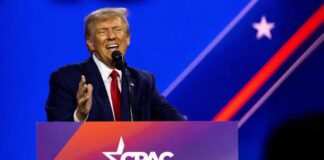
The pandemic-era push for more permissive absentee voting rules has prompted widespread concerns about election integrity, leading a number of states to implement additional safeguards against possible fraud.
In Wisconsin, one such law requires mail-in ballots to include a witness signature. Now, a Democratic Party-aligned law firm is taking the state to court on behalf of four voters who claim the requirement is unlawful.
This looks like something you would do if you wanted to cheat. 🤔https://t.co/JJW3vyuEna
— Rep. Barbara Dittrich (@RepDittrich) October 4, 2023
Citing both the Voting Rights Act of 1965 and a subsequent federal law passed five years later, the Elias Law Firm asserts that mandating a witness signature is somehow evidence of voter discrimination.
“When Congress enacted the Voting Rights Act in 1965, it took aim ‘at the subtle, as well as the obvious,’ discriminatory state voting regulations,” the lawsuit states. “One especially pernicious practice adopted by southern states after the Civil War required any would-be voter to produce a ‘supporting witness’ willing to … ’vouch’ for the aspiring voter’s qualifications.”
The suit goes on to outline some of the supposedly onerous requirements associated with mailing in a valid absentee ballot.
“The voter must attest, among other things, they are entitled to vote, they exhibited the enclosed ballot unmarked to the witness and they then, in the witness’s ‘presence and in the presence of no other person,’ marked the ballot and sealed the ballot envelope,” the firm wrote. “The witness, in turn, must attest that ‘the above statements’ – those made by the voter in the voter attestation—’ are true.’”
While safeguards against fraud put in place by Wisconsin lawmakers are more stringent than in many Democratic-controlled states with few, if any, restrictions on absentee voting, one-fifth of all states currently have witness requirements on the books.
In four of those states — Mississippi, Missouri, Oklahoma, and South Dakota — the ballots must either be notarized or contain a copy of a valid state identification card.
Furthermore, nothing in the lawsuit asserts that any of the four voters represented by the firm have been disenfranchised by the requirement.
Ahead of the 2020 election, then-President Donald Trump warned of the potential fraud and irregularities associated with widespread mail-in voting.
While defending the practice of absentee voting with certain safeguards in place, he said: “Universal mail-in voting is going to be catastrophic, it’s going to make our country the laughing stock of the world. The problem with the mail-in voting, number one, is you’re never going to know when the election is over.”

































